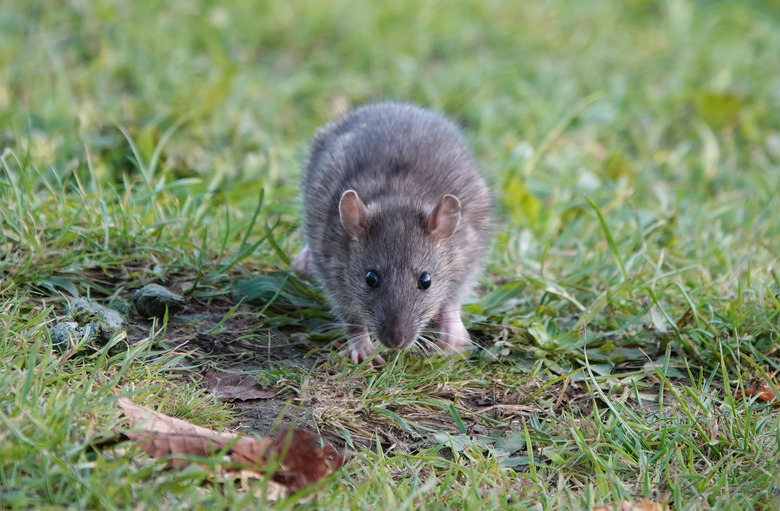How To Keep Rats Out Of Your Yard
We may receive a commission on purchases made from links.
Rats have simple needs: food, water, and shelter. If your yard provides those things, you could find your property becoming a hot spot for rats. Eliminating these things makes your property less appealing and can help reduce or eliminate rat residents. Keeping rodents out of your yard can help prevent a rat infestation in your home.
How to Keep Rats Out of Your Yard
1. Clean Up Your Yard
One of the easiest options for keeping rats away is cleaning up your yard. Yard waste, overgrown bushes, and piles of debris provide shelter for rats. They'll go there to sleep, hide from threats, and reproduce.
These steps will help you eliminate things that attract rats:
- Clean up fallen leaves, branches, and other natural debris.
- Pull mulch and other natural materials away from the house at least 6 inches.
- Trim the bottoms of shrubs to eliminate hiding spots.
- Space out your shrubs so there is not one dense band of plants.
- Weed garden spaces regularly.
- Handle lawn mowing regularly.
- If you leave anything in your yard, elevate it and position it away from walls.
If your neighbors have an overgrown lawn, rats could come into your yard from theirs. Work with your neighbors to clean up debris, trash, and overgrown plants for greater success in eliminating rats from your yard.
2. Remove Signs of Rats
If you notice signs of rats, which include droppings, holes, gnaw marks, and dark, greasy smudges along walls, clean up those things because the rat urine and droppings can attract more rats. Some types of rats can have hantavirus, which is dangerous to humans, so handle droppings with care.
Washing away the greasy trails and cleaning up droppings with 1 part bleach to 10 parts water can help. Apply the bleach solution to the droppings and let it soak in for about five minutes before picking them up with paper towels and throwing them in a trash bag. Once you've safely cleaned up the droppings, wipe the greasy marks with more bleach solution.
3. Remove or Block Shelter
In addition to yard waste and overgrowth, other structures on your property, including garages, sheds, and your home, can provide shelter for rats. Holes and gaps in those structures give rats an easy access point. By covering those entry points, you make shelter on your property more difficult, which can help keep rats away.
Inspect all structures for small cracks and gaps. Common entry points include cracks in the foundation, gaps around doors and windows, and drain or vent openings. Sealing openings with caulk, sheet metal, or other materials eliminates those openings. For things like vents that need to remain open, use a wire mesh screen to keep rats out while leaving the vent functional.
4. Eliminate Water Sources
Removing water sources from the yard can also deter rats. Potential sources of water include decorative ponds, water features, dripping water faucets, poor yard drainage, and garden hoses. Empty those things or make repairs as necessary to eliminate standing water.
5. Put Away Your Trash
The items you throw away aren't appealing to you, but your garbage is the perfect food source for rats. If possible, keep your trash can inside a garage or shed to keep it away from rats. Upgrade to a trash can that snaps closed securely or add a trash can strap to secure the lid and make it more difficult for rats to reach the contents. Only put the trash can by the curb when it's close to your trash pickup time.
6. Use a Pest Control Service
If you already have rats on your property, hiring a pest control service might be necessary. They can exterminate the rats and recommend ways to prevent them from coming back.
